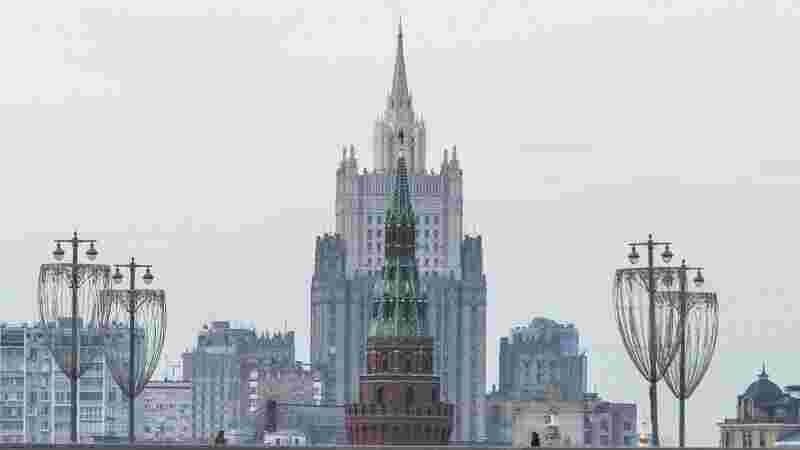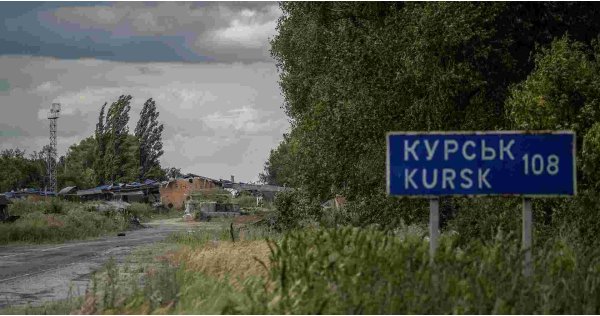Ukraine's audacious cross-border offensive into Russia continues to target critical infrastructure, with troops successfully disabling key bridges in western Russia. Simultaneously, Moscow's mayor accused Kyiv of orchestrating "one of the largest ever" drone assaults on the Russian capital on Wednesday.
This Ukrainian incursion, launched nearly two weeks ago, has seen forces steadily advancing in the Kursk region, strategically targeting bridges to disrupt Moscow's logistical capabilities and sever crucial supply lines. At least two bridges spanning the Seym River in Kursk were rendered inoperable last week. While Ukraine attributed the destruction of one bridge to "precision airstrikes," Russia claimed Kyiv employed Western-supplied rockets for the other.
Satellite imagery provided by Planet Labs and BlackSky revealed Russia's response: the swift construction of at least three pontoon bridges – temporary floating structures often deployed in emergencies or wartime scenarios – across the river. However, a video obtained and geolocated by CNN captured a Ukrainian drone striking one of these pontoon bridges. The drone, designed to detonate on impact, was likely armed with warheads intended to obliterate both the target and itself. Unlike larger military drones that return to base after deploying missiles, these smaller, less detectable drones can be launched remotely.
Although the video doesn't definitively show the vehicle's destruction, subsequent BlackSky satellite imagery from Tuesday revealed the pontoon bridge's disappearance, replaced by significant burn scars in its former location. Further satellite images confirmed the presence of a new pontoon bridge spanning another section of the river nearby. A third pontoon bridge was also identified in satellite imagery from the European Space Agency and Planet Labs.
This offensive in Kursk has exposed vulnerabilities in Russia's ability to defend its own territory. On Tuesday, Ukrainian military chief Oleksandr Syrskyi reported significant progress, with troops penetrating up to 35 kilometers (21.7 miles) through Russian defenses since the surprise assault began. This advance has resulted in the capture of 93 settlements. Ukrainian President Volodymyr Zelensky outlined the incursion's objectives: creating a "buffer zone" to thwart cross-border attacks by Russian forces, disrupting Russia's economy, and "destroying as much Russian war potential as possible."
Echoing this assessment, US Pentagon Press Secretary Maj. Gen. Patrick Ryder acknowledged Russia's struggles in countering the offensive, stating that Ukraine continues to make advances. Despite Moscow's deployment of "a small number of forces" to the Kursk region, Ryder emphasized the "creativity and battlefield prowess of the Ukrainians." He remained cautious about Ukraine's long-term objectives, stating that discussions are ongoing. While declining to specify the origin of the redeployed Russian forces, CNN reported last week that Russia had diverted several thousand troops from occupied territories in Ukraine to Kursk.
Adding to the tension, Russian authorities have issued urgent advisories to residents and military personnel in the embattled border regions, urging them to avoid using dating apps or social media. This measure aims to prevent Ukrainian forces from gathering intelligence. The Russian Interior Ministry, in a Telegram post, explicitly warned against using online dating services, stating that the "enemy actively uses such resources for information gathering." The advisory, targeting residents and troops in the Bryansk, Kursk, and Belgorod border regions, included a comprehensive list of recommendations, emphasizing online security and urging the removal of geotagging from social media.
Meanwhile, Russian authorities claimed their air defense systems neutralized 45 Ukrainian drones overnight, including 11 over Moscow, two over the Belgorod border region, and two in Kursk. Moscow's Mayor Sergei Sobyanin, in a Telegram post on Wednesday, described this as "one of the largest attempts to attack Moscow with drones of all time." Citing preliminary information, Sobyanin reported no injuries or damage. Reuters, quoting Sobyanin, indicated that some drones were intercepted over Podolsk, approximately 38 kilometers (24 miles) south of the Kremlin. Reuters was unable to independently verify these claims, and there was no immediate response from Ukraine.
This incident follows previous drone attacks on the Russian capital. In July 2023, drones struck two non-residential buildings in Moscow, including one near the Ministry of Defense headquarters, causing no significant damage or casualties. In November 2022, Russia claimed to have thwarted more than 20 Ukrainian drone attacks, including those targeting Moscow. This followed one of Russia's largest drone assaults on the Ukrainian capital since the full-scale invasion began.
Ukraine advances in Russia as Moscow mayor accuses Kyiv of ‘one of largest ever’ drone attacks
Ukraine’s bold cross-border advance in Russia has seen troops continue to take out key bridges in the western part of the country, while on Wednesday Moscow’s mayor accused Kyiv of attempting to launch “one of the largest ever” drone attacks on the capita




